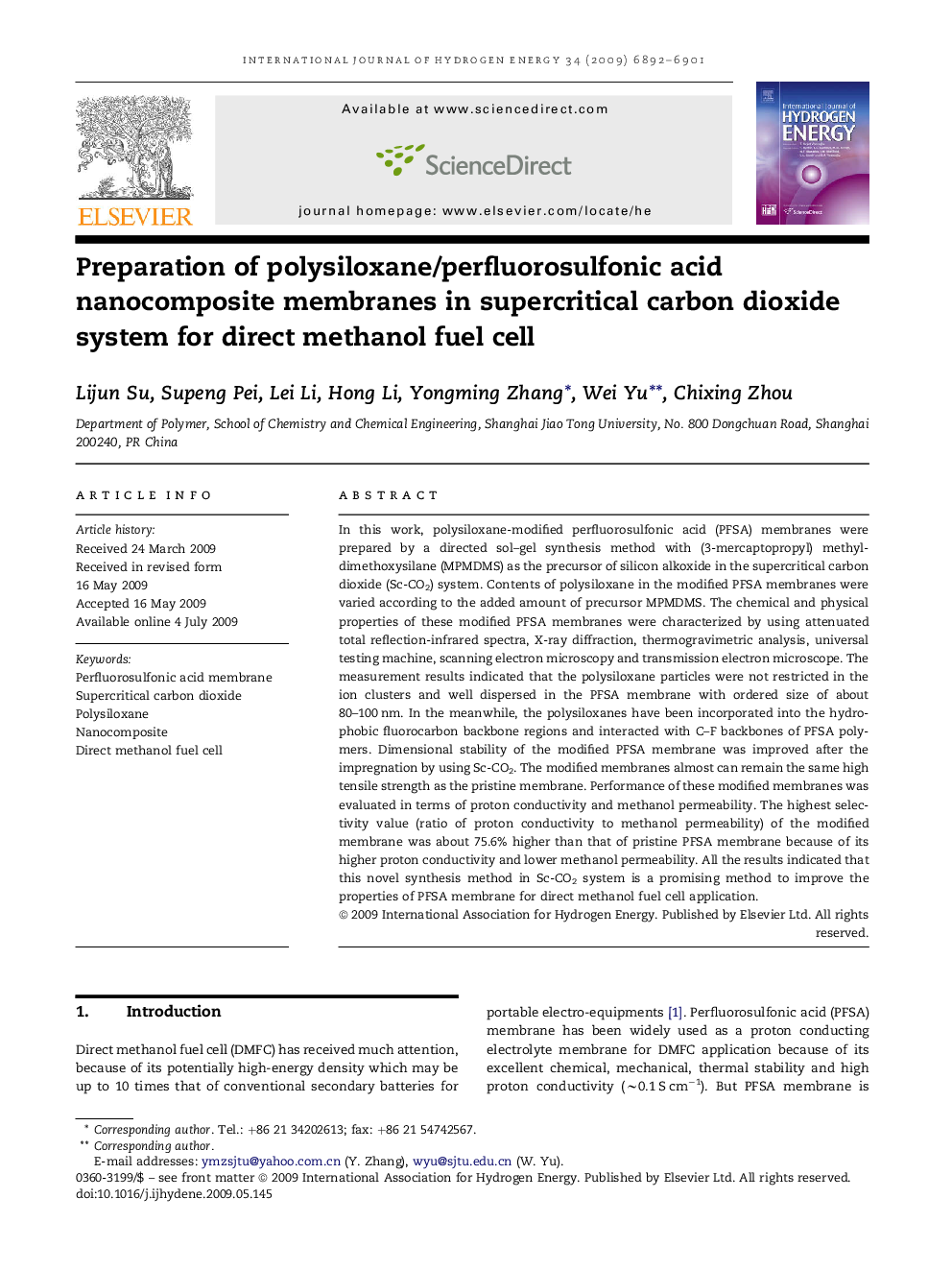| Article ID | Journal | Published Year | Pages | File Type |
|---|---|---|---|---|
| 1277645 | International Journal of Hydrogen Energy | 2009 | 10 Pages |
In this work, polysiloxane-modified perfluorosulfonic acid (PFSA) membranes were prepared by a directed sol–gel synthesis method with (3-mercaptopropyl) methyldimethoxysilane (MPMDMS) as the precursor of silicon alkoxide in the supercritical carbon dioxide (Sc-CO2) system. Contents of polysiloxane in the modified PFSA membranes were varied according to the added amount of precursor MPMDMS. The chemical and physical properties of these modified PFSA membranes were characterized by using attenuated total reflection-infrared spectra, X-ray diffraction, thermogravimetric analysis, universal testing machine, scanning electron microscopy and transmission electron microscope. The measurement results indicated that the polysiloxane particles were not restricted in the ion clusters and well dispersed in the PFSA membrane with ordered size of about 80–100 nm. In the meanwhile, the polysiloxanes have been incorporated into the hydrophobic fluorocarbon backbone regions and interacted with C–F backbones of PFSA polymers. Dimensional stability of the modified PFSA membrane was improved after the impregnation by using Sc-CO2. The modified membranes almost can remain the same high tensile strength as the pristine membrane. Performance of these modified membranes was evaluated in terms of proton conductivity and methanol permeability. The highest selectivity value (ratio of proton conductivity to methanol permeability) of the modified membrane was about 75.6% higher than that of pristine PFSA membrane because of its higher proton conductivity and lower methanol permeability. All the results indicated that this novel synthesis method in Sc-CO2 system is a promising method to improve the properties of PFSA membrane for direct methanol fuel cell application.
